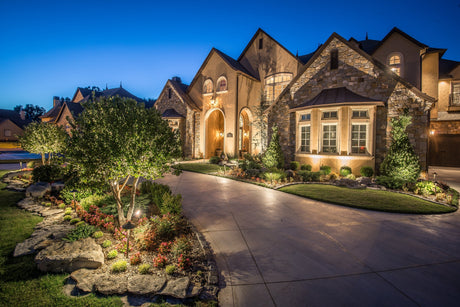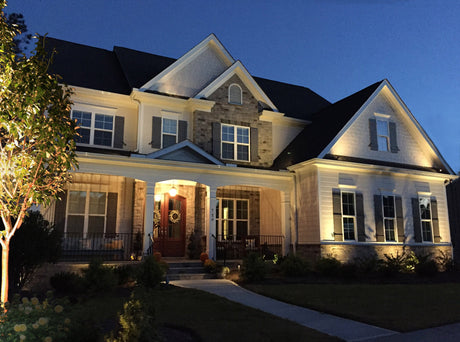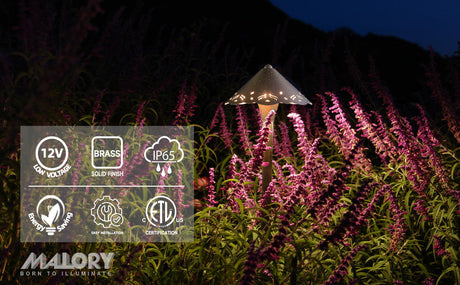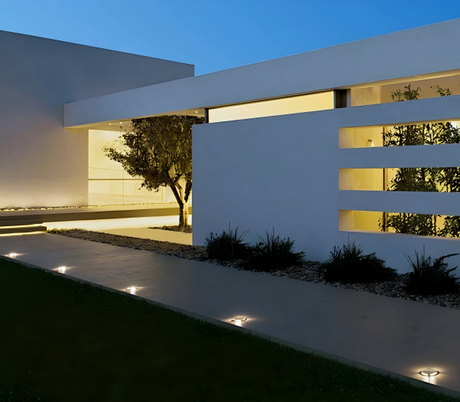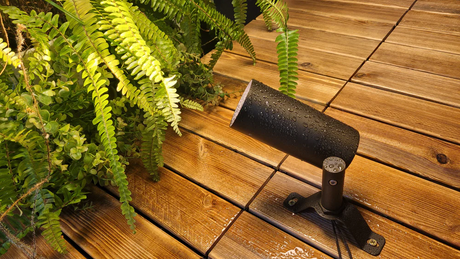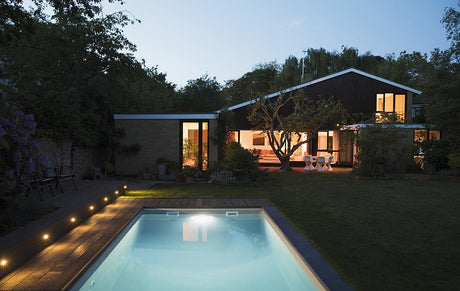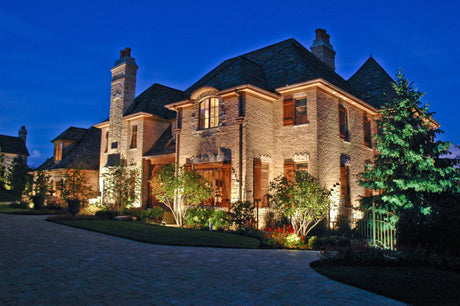When designing an outdoor walkway, selecting the right lighting is crucial for both functionality and aesthetics. Two popular choices—path lights and in-ground lights—offer distinct advantages depending on your landscape lighting needs. This guide will help you determine which option best suits your outdoor lighting project, ensuring safety, visual appeal, and long-term durability.
Understanding Path Lights and In-Ground Lights
Path Lights
Path lights are above-ground fixtures typically installed along walkways, driveways, and garden borders. They provide direct illumination, casting light downward to define edges and improve nighttime visibility. These fixtures come in various styles, including:
- Bollard lights (tall, cylindrical designs)
- Stake lights (spiked for easy ground insertion)
- Lantern-style lights (decorative options for traditional landscapes)
Best for:
- ✔ Enhancing walkway visibility
- ✔ Defining garden borders
- ✔ Adding decorative accents to landscapes
In-Ground Lights (Recessed Lighting)
Recessed Lighting, also called in-ground lights, are installed flush with the ground, emitting an uplight or wash effect. These lights are often used for:
- Highlighting architectural features (walls, steps, trees)
- Creating a minimalist, modern look
- Providing subtle, glare-free illumination
Best for:
- ✔ Modern landscape lighting designs
- ✔ Accent lighting for pathways with steps or elevation changes
- ✔ Low-profile lighting that doesn’t obstruct views

Key Factors to Consider When Choosing Between Path and In-Ground Lights
1. Safety and Visibility
Path lights excel at delineating walkways, reducing tripping hazards, and guiding visitors safely. Studies show that well-lit pathways can reduce nighttime accidents by up to 30%.
In-ground lights offer glare-free illumination, making them ideal for steps and uneven terrain where direct light could cause discomfort.
2. Aesthetic Impact
Path lights add vertical interest to landscapes, creating rhythm and structure.
In-ground lights provide a sleek, unobtrusive look, perfect for contemporary designs.
3. Installation and Maintenance
Path lights are easier to install but may require periodic repositioning due to soil movement or lawn maintenance.
In-ground lights demand professional installation (wiring, waterproofing) but are more durable long-term.
4. Light Distribution and Coverage
Path lights cast a focused pool of light, ideal for marking edges.
In-ground lights create a wider wash of light, useful for illuminating walls or textured surfaces.
Expert Recommendations for Optimal Outdoor Lighting
Landscape lighting experts suggest:
- Combining both types for layered lighting effects—e.g., path lights for guidance and in-ground lights for accenting.
- Using LED technology for energy efficiency and longevity (50,000+ hours lifespan).
- Avoiding overlighting, which can create harsh shadows and reduce visibility.

Final Verdict: Which Should You Choose?
| Feature | Path Lights | In-Ground Lights |
|---|---|---|
| Best for | Walkway definition, traditional landscapes | Modern designs, architectural accents |
| Installation | Easy (stake or surface-mount) | Requires professional setup |
| Maintenance | Moderate (may need repositioning) | Low (once installed) |
| Light Spread | Focused downward | Wide uplight or wash effect |
For most homeowners, a mix of both provides the best balance of safety and style. If your priority is clear walkway visibility, path lights are the superior choice. If you prefer a minimalist, high-end look, in-ground lights deliver seamless integration.
By carefully assessing your landscape’s needs, you can select the perfect outdoor lighting solution that enhances both beauty and functionality.


